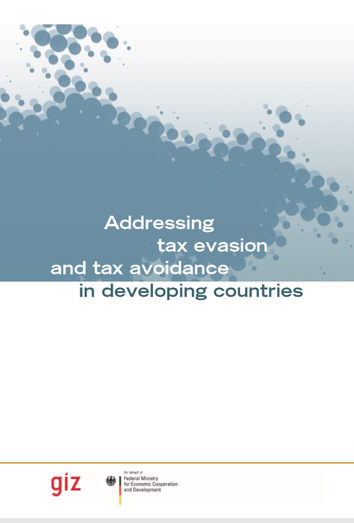
Addressing tax evasion and tax avoidance in developing countries
This paper gives an overview of the available knowledge on tax evasion and tax avoidance in developing countries. Although the topic of tax evasion and tax avoidance represents a problem for developed and developing countries, literature and data concerning this topic are still scarce. This is partly explained by the fact that the extent of tax evasion and avoidance is hard to estimate as the phenomena are difficult to observe and precise data is lacking. So far there are no reliable empirical findings which provide a clear picture of size of the problem or the relative importance of different kinds of tax evasion and avoidance.
The findings suggest that there are various reasons and facilitating factors for tax evasion and tax avoidance. These might be categorized into factors that negatively affect taxpayers’ compliance with tax legislation on the one hand and into reasons explaining the weak capacity of tax administration and fiscal courts to enforce tax liabilities on the other side. In order to develop methods and instruments for fighting tax evasion and avoidance, it is important to foremost establish a broad understanding of the different reasons underlying these problems.
Moreover, developing countries seem to be especially vulnerable to profit shifting of multinational enterprises and to the misuse of tax incentives designed to attract foreign direct investment.